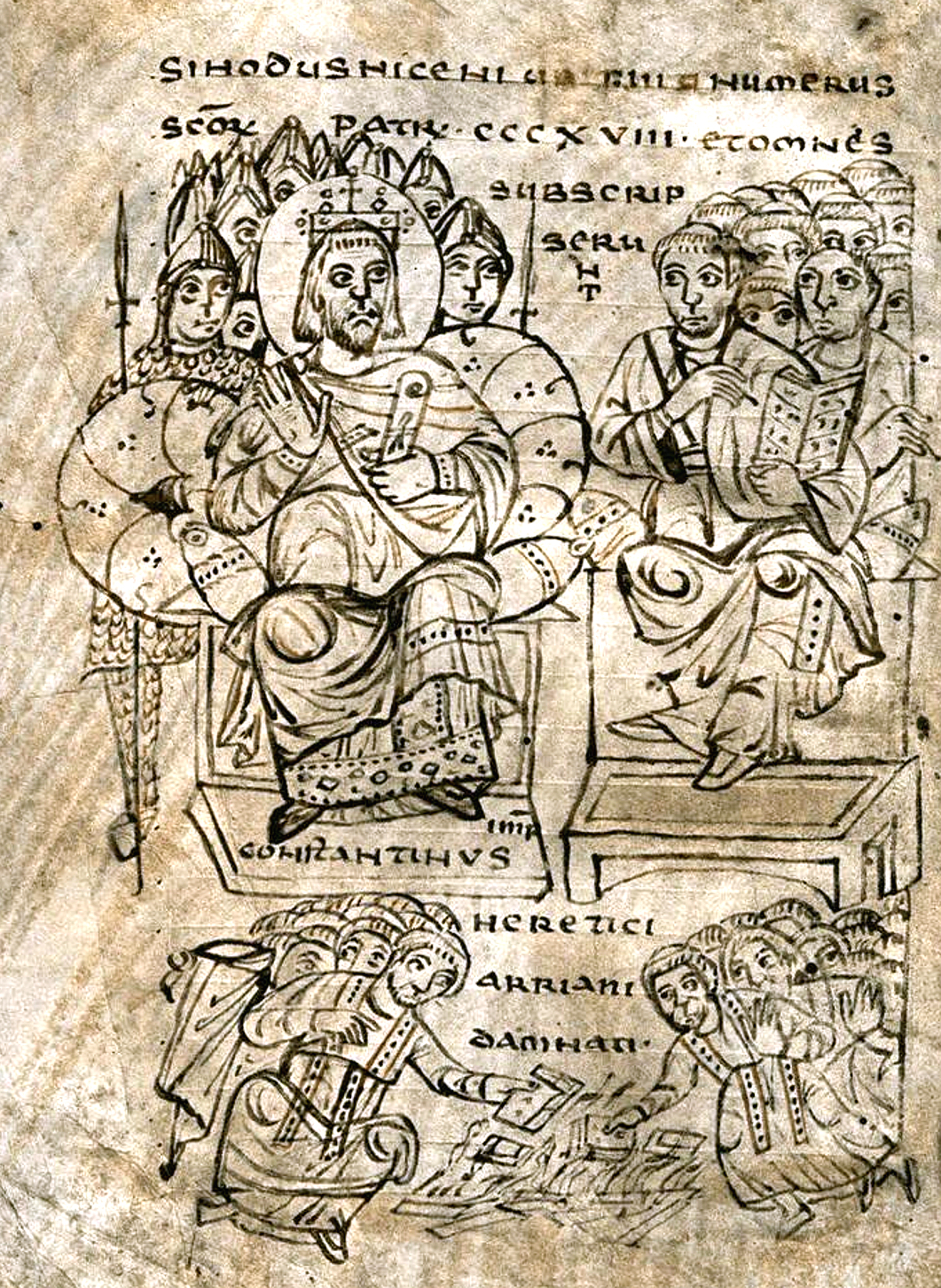Arianism
Enlarge text Shrink textArianism (Koinē Greek: Ἀρειανισμός, Areianismós) is a Christological doctrine which rejects the traditional notion of the Trinity and considers Jesus to be a creation of God, and therefore distinct from God. It is named after its major proponent, Arius (c. AD 256–336). It is considered heretical by most modern mainstream branches of Christianity. It is held by a minority of modern denominations, although some of these denominations hold related doctrines such as Socinianism, and some shy away from use of the term Arian due to the term's historically negative connotations. Modern mainstream denominations sometimes connected to the teaching include Jehovah's Witnesses, some individual churches within the Churches of Christ (including the movement's founder Barton W. Stone), as well as some Hebrew Roots Christians and Messianic Jews (although many Messianic Jews also follow Nicene Christianity). It is first attributed to Arius (c. AD 256–336), a Christian presbyter who preached and studied in Alexandria, Egypt, although it developed out of various pre-existing strands of Christianity which differed from later Nicene Christianity in their view of Christology. Arian theology holds that Jesus Christ is the Son of God, who was begotten by God the Father with the difference that the Son of God did not always exist but was begotten/made before time by God the Father; therefore, Jesus was not coeternal with God the Father, but nonetheless Jesus began to exist outside time. Arius' trinitarian theology, later given an extreme form by Aetius and his disciple Eunomius and called anomoean ('dissimilar'), asserts a total dissimilarity between the Son and the Father. Arianism holds that the Son is distinct from the Father and therefore subordinate to him. The term Arian is derived from the name Arius; it was not what the followers of Arius' teachings called themselves, but rather a term used by outsiders. The nature of Arius's and his supporters' teachings were opposed to the theological doctrines held by Homoousian Christians regarding the nature of the Trinity and the nature of Christ. Homoousianism and Arianism were contending interpretations of Jesus's divinity, both based upon the trinitarian theological orthodoxy of the time. Homoousianism was formally affirmed by the first two ecumenical councils; since then, Arianism has been condemned as "the heresy or sect of Arius". Trinitarian (Homoousian) doctrines were vigorously upheld by Patriarch Athanasius of Alexandria, who insisted that Jesus (God the Son) was "same in being" or "same in essence" with God the Father. Arius dissented: "If the Father begat the Son, then he who was begotten had a beginning in existence, and from this it follows there was a time when the Son was not." The ecumenical First Council of Nicaea of 325 declared Arianism to be a heresy. According to Everett Ferguson, "The great majority of Christians had no clear views about the nature of the Trinity and they did not understand what was at stake in the issues that surrounded it." Arianism is also used to refer to other nontrinitarian theological systems of the 4th century, which regarded Jesus Christ—the Son of God, the Logos—as either a begotten creature of a similar or different substance to that of the Father, but not identical (as Homoiousian and Anomoeanism) or as neither uncreated nor created in the sense other beings are created (as in semi-Arianism).
Read more on Wikipedia >
 Topic
Topic









